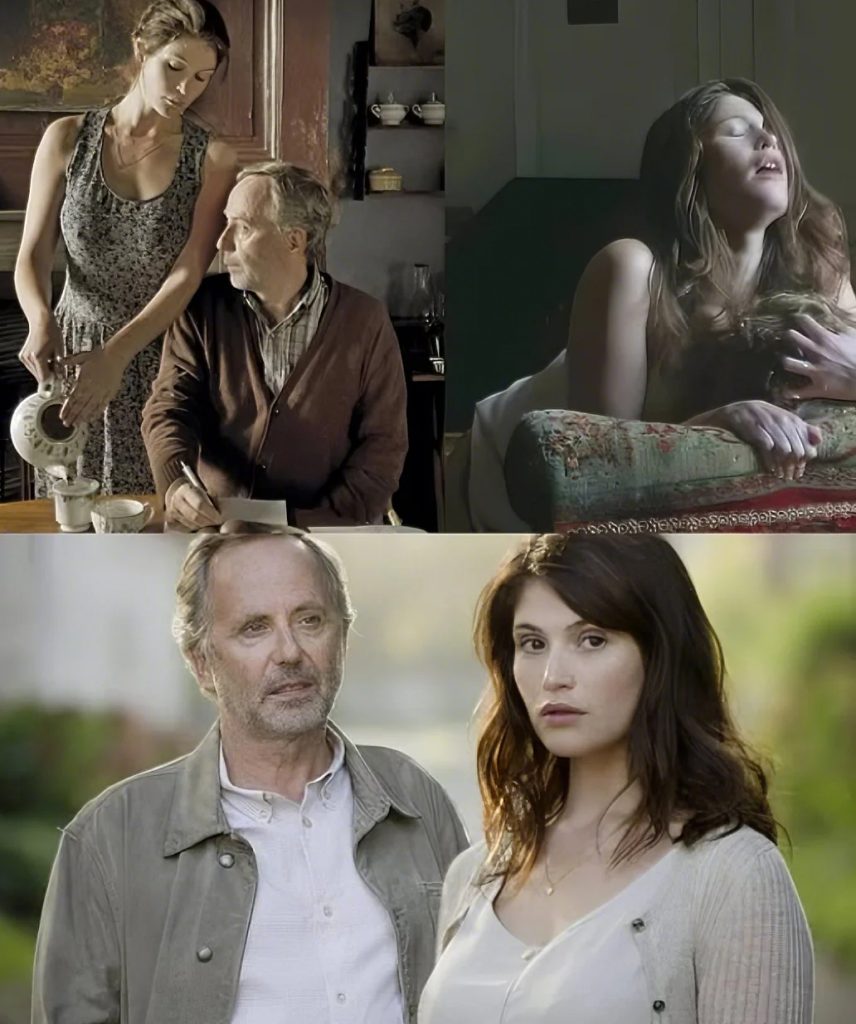Gemma Bovery (2014): A Modern Twist on a Classic Tale of Desire and Disillusionment
Directed by Anne Fontaine and based on Posy Simmonds’ graphic novel of the same name, Gemma Bovery (2014) is a French-British romantic drama that cleverly reimagines Gustave Flaubert’s 19th-century novel Madame Bovary in a modern setting. Blending satire, sensuality, and subtle tragedy, the film explores the seductive power of fiction and the blurred lines between life and literature.
Plot Overview
The story follows Martin Joubert (played by Fabrice Luchini), a middle-aged French baker and former Parisian who has retreated to the quiet countryside of Normandy. A passionate lover of classic literature—particularly Madame Bovary—Martin’s humdrum life is stirred when a British couple, Gemma and Charles Bovery (Gemma Arterton and Jason Flemyng), move into a nearby farmhouse.

Martin is instantly struck by the uncanny similarities between his new neighbors and Flaubert’s iconic characters. Gemma is beautiful, impulsive, and dissatisfied—eerily resembling Emma Bovary. Charles is a well-meaning but dull husband. As Martin observes Gemma’s life unfold, he becomes increasingly convinced she is destined to repeat the tragic path of her literary namesake. What begins as fascination slowly turns into obsession, as Martin attempts to steer the narrative away from its seemingly inevitable conclusion.
Themes and Interpretation
Gemma Bovery is not a straightforward adaptation but rather a playful commentary on storytelling itself. Fontaine crafts a metafictional tale where the protagonist becomes a voyeuristic author figure, projecting a fictional framework onto real lives. Martin’s fixation on Gemma is as much about his love for literature as it is about his own dissatisfaction and longing.
The film examines how people see others through the lens of fantasy and how those perceptions can influence—or even distort—reality. Gemma is never just Gemma to Martin; she is a reincarnation of Emma Bovary, and he treats her story as something to control or interpret rather than simply observe.
While rooted in comedy and satire, the film also deals with themes of infidelity, cultural disconnect, romantic disillusionment, and the quiet despair of provincial life. Gemma’s emotional turmoil and search for passion are treated with empathy, even as her life is scrutinized by those around her.
Performances and Style
Gemma Arterton delivers a nuanced performance, balancing charm, vulnerability, and restlessness. She portrays Gemma as a woman torn between romantic ideals and the harshness of reality. Fabrice Luchini shines as the meddling, self-important Martin, injecting humor and pathos into his portrayal of a man caught between books and real life.
Visually, the film is warm and picturesque, capturing the rustic beauty of the French countryside. The setting contrasts with the emotional undercurrents of the story, much like Flaubert’s original novel, where outward serenity belies inner turmoil.
Reception
Gemma Bovery received mixed to positive reviews upon its release. Critics praised the performances, particularly Arterton’s and Luchini’s, as well as the film’s elegant visuals and intellectual playfulness. However, some noted that the film’s tonal shifts—from farcical comedy to melodrama—could feel uneven.
Despite this, the film was appreciated for its thoughtful homage to Madame Bovary, its commentary on the role of literature in shaping perception, and its exploration of how people seek meaning through romanticized ideals.
Conclusion
Gemma Bovery is a charming, melancholic, and witty film that blends classic literature with contemporary storytelling. It offers a fresh take on Flaubert’s enduring themes, reminding us that while times change, the human yearning for passion, escape, and meaning remains constant. Through its layered narrative and sharp performances, the film invites viewers to reflect not only on the characters but also on their own relationship with fiction, desire, and the stories we choose to tell ourselves.


